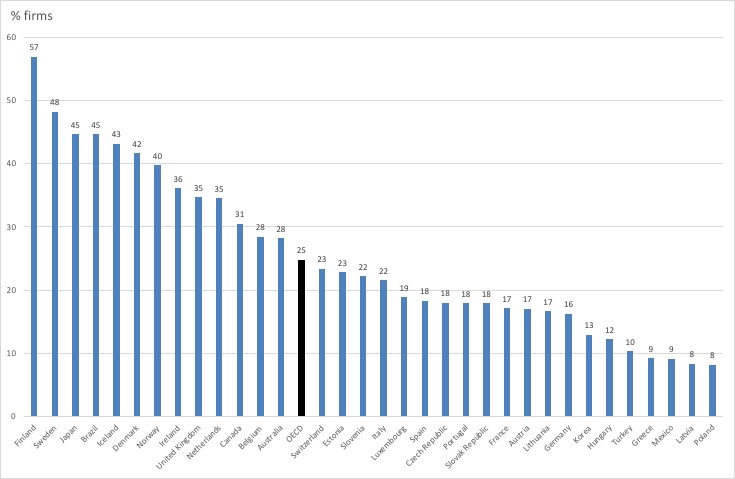Building better business health
Building better business health: what can we learn from public health campaigns?
The continuing productivity gap between the UK and its international competitors has focussed attention on the competitiveness of UK firms. So how can we boost the health and vitality of UK businesses? Or, more accurately, how can we encourage businesses themselves to take steps which boost their productivity and competitiveness?
Well, we all know about the ‘five-a-day’ campaign to encourage us to eat more fruit and vegetables, a public health campaign which originated in the US, and which has run in a similar form in Australia, Canada, France, German, Japan and New Zealand and a number of other countries. Of course, being aware of the benefits of eating more fruit and vegetables is one thing. Actually doing it is quite another matter. The availability and costs of fresh fruit and vegetables for example may both be barriers to healthy eating.
Despite these challenges the UK actually tops the European League table in terms of 5-a-day with over a third of UK adults getting their 5-a-day and beating Denmark and the Netherlands (2nd and 3rd in the league) by a substantial margin. In terms of business health the picture in the UK is less rosy, with flat productivity growth and firms’ take-up of productivity enhancing innovations such as cloud-based computing lagging some of our key international competitors (Figure 1).
Figure 1: Use of cloud computing 2016 – all firms with more than 10 employees
Source: OECD Digital Outlook, 2017, Figure 4.5.
Newly published research by the Enterprise Research Centre suggests though that there could be substantial productivity gains from wider adoption of digital technologies. For example, adoption of cloud-based computing increases productivity by 13.5 per cent after three years. Using other digital technologies can have similar productivity- enhancing effects with CRM use adding 18.4 per cent to productivity, E-commerce 7.5 per cent and web-based accounting software 11.8 per cent.
So why aren’t UK firms as quick to adopt cloud computing as we seem to be to take on board the ‘5-a-day’ health message? There are a number of factors at play here. For technologies to be quickly adopted, potential adopters must see new technology as better than the old system, be confident that it is compatible with their needs, and be easy to use. Adoption of new technologies is also greater if their benefits are easily observable and/or the technology can be used on a trial basis. Cost and budgetary constraints can also act as barriers to adopting new technologies, as well as managerial structures and competing investment priorities.
So, is there anything we can learn from public health promotion campaigns like the ‘five-a-day’ campaign which might help us accelerate the take up of new digital technologies and improve the health of the UK’s businesses?
There is no golden bullet of course but good practice in public heath campaigns is based around some general principles which also seem very relevant to business health campaigns:
- Knowing the target audience – collect demographic and behavioural information to create a target profile. Where possible, segment. Ensure that you have a complete and compelling understanding of your audience.
- Create an identity that communicates your values and your intended relationship with your audience. The ‘5-a-day’ branding is an effective example.
- Identify clearly the bottom line changes you hope the campaign will accomplish. In the ‘5-a-day’ campaign this is very clear, as is the motivation for people to engage.
- Consider a mix of communication strategies including media, inter-personal and events. Use a mix of short-term and long-term channels.
- Combine and sequence channels across your timeline. Apply the rule: 3 messages, 3 times, 3 different ways.
- Ensure each message includes a ‘What’; a ‘So what’; and a ‘What next’.
The other key element of all public health campaigns is persistence. It can take several years to change behaviour – the ‘five-a-day’ campaigns originated in the early-1980s…
Now, I think it’s time to eat an apple!
Stephen.roper@wbs.ac.uk / Jane.bourke@ucc.ie
Please note that the views expressed in this blog belong to the individual bloggers and
do not represent the official view of the Enterprise Research Centre, its Funders or Advisory Group.















